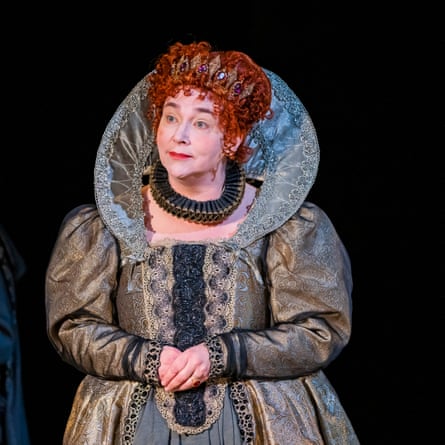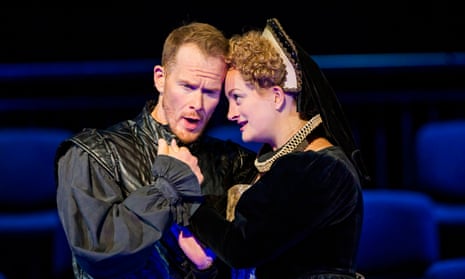Originally scheduled to mark Elizabeth II’s platinum jubilee year, English National Opera’s single performance of Britten’s Gloriana became instead a tribute to the late Queen’s memory, heightening, perhaps, the ambiguities of a work that holds an awkward place in the Britten canon. Commissioned for the coronation celebrations of 1953, it drew something of a blank at the time. Based on Lytton Strachey’s Elizabeth and Essex, the opera commemorates the start of the second Elizabethan age by chronicling the closing years of the first, and is essentially an ambivalent, darkly unsettling study of the loneliness of power and the sexual self-deceptions of age. The score is uneven and hampered by a dramatically clumsy first act, though later scenes contain some of Britten’s most resplendent music.

ENO promised a concert performance, but Ruth Knight’s simple but effective staging, playing to a packed theatre, was much more. The chorus wore black and used scores, the protagonists were in period dress and sang from memory. Video projections provided historical detail and suggested the steady passing of time as it erodes people’s lives. Knight was particularly strong on the relationship between opportunism, hypocrisy and political machination as Robert Murray’s calculating Essex pressed his attentions on Christine Rice’s proud yet vulnerable Elizabeth in a world in which intrigue and gossip to some extent define and circumscribe both their lives.
Rice, singing Elizabeth for the first time, gave one of her greatest performances to date, admirably secure over the wide span of Britten’s vocal lines, and superbly characterised, the private doubts that offset the public self-assurance wonderfully conveyed. Murray, at once lyrical and incisive, sounded insidiously seductive in the lute songs with which he attempts to beguile Elizabeth. The rest of the cast was consistently strong. Duncan Rock made a handsome, cocksure Mountjoy, with Eleanor Dennis as his arrogant, imperious Penelope. Paula Murrihy was the longsuffering Lady Essex, loyal to the last, and Willard White, no less, played both the Ballad Singer and the Recorder of Norwich. Martyn Brabbins conducted it wonderfully well, with bags of passion and detail in the playing and splendid, richly resonant choral singing. An exceptionally fine evening, with ENO absolutely at the top of its game.

Comments (…)
Sign in or create your Guardian account to join the discussion